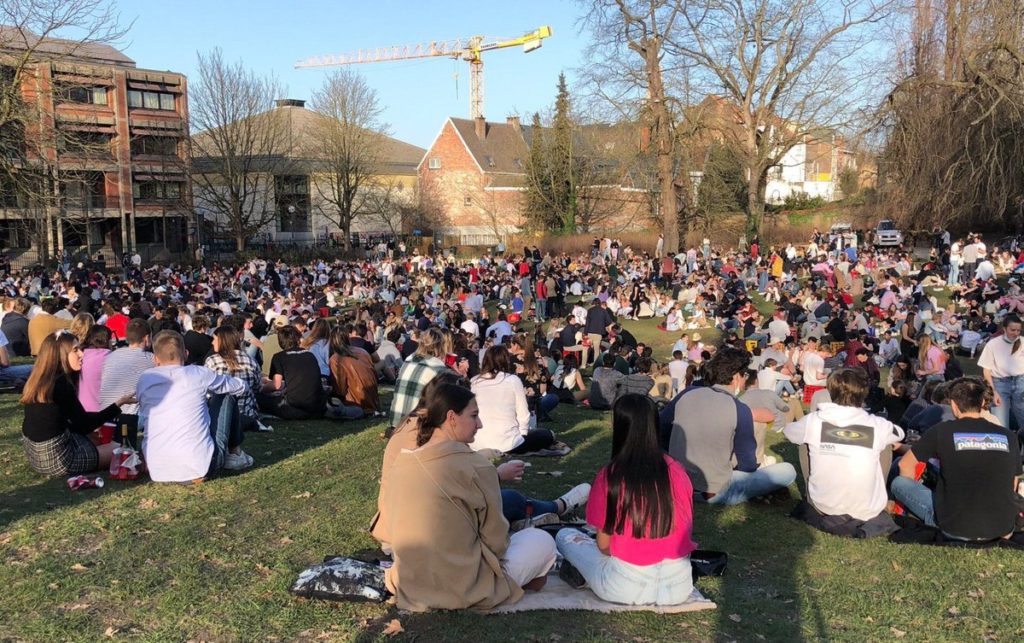The Delta variant, which has been gaining ground in Belgium, is mainly spreading via young people, according to biostatistician Geert Molenberghs (UHasselt and KULeuven), as they are less likely to be fully vaccinated.
The mutation, previously known as the Indian variant, accounted for around 15.7% of the cases in Belgium last week, up from 6.1% the week before, and this number will likely increase to 80-90% by the end of July, Molenberghs warned on Radio 1.
"In a number of countries, for example in the UK, we can see very clearly that the advance of the Delta variant is taking place primarily via the younger generations," he said.
"Within this age group, the majority has not yet been vaccinated, as they are more likely to be last in line in the vaccination rollout," he said, adding that it will be very important that young people also get vaccinated to ensure Belgium reaches group immunity.
The threshold for herd immunity should be raised higher than the 70% that was assumed at the start of the vaccination campaign due to the Delta variant as well, according to Gudrun Briat, spokesperson for the Taskforce. "Only in this way can we sustainably return to normal life," she added.
Vaccinating this age group is also vital as the Delta variant could result in more cases of long-Covid among teenagers and twenty-somethings. In Flanders, 74% of 18 and 19-year-olds have not yet received a vaccine, as have 60% of those in their twenties, according to reports from De Standaard.
Both Molenberghs and a recent study published in Nature Medicine on the long-term effects of the virus highlighted that younger people can suffer from fatigue and concentration problems for months following an infection.
Travel abroad
Molenberghs explained that travel during the summer will also have a big impact on the spread of the mutation, "especially if large groups that are not yet or not fully vaccinated start travelling."
"We know that the vaccines work against the Delta variant, but only when people are fully vaccinated and after 14 days, and that is not yet the case for many people wanting to travel," Molenberghs said.
However, in Belgium as a whole, and especially in Flanders, the vaccination uptake is quite high, also among young people.
"We see that in countries where vaccination is good, in the UK for example, where 60% are fully vaccinated, vaccination is doing its job in slowing down the spread, but the coverage is not yet far enough, especially in Belgium, to completely stop the variant from spreading," he explained.
When asked about the effect the UEFA Euro 2020 championships will have on the spread, Molenberghs pointed out that "we cannot isolate one aspect from the whole picture, but the fact is that people come together in large groups and this also involves travel, and these are of course two things together that worry us."
Both in Russia, where the vaccination rollout is slower and in specific regions where matches are being played, including Seville, the figures are rising significantly, mainly as a result of the Delta variant spreading.

